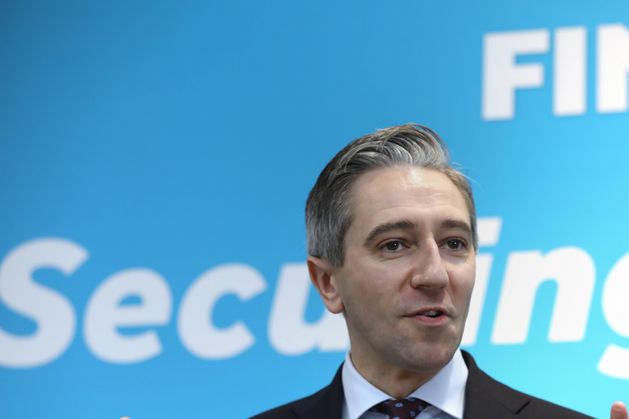Having a party of Independents is just one strange motif of politics in Ireland, as I found out in my research
I came with Belgian expectations, but I soon learnt the Irish system was full of surprises. In fact some features of Irish politics really surprised me. I’m not saying they are all dysfunctional nor that they are bad, but they are certainly odd.
VoteSmart is an online tool that helps voters align their beliefs with the policy positions of parties and Independents. It is carefully calibrated and involves significant engagement with parties. It is very popular during Belgian elections for which we’ve used it on eight occasions.
The first surprise when I met the team working on the Irish version was they spent so much time speculating on when an election might actually take place. My colleagues told me that elections had to take place by March 2025 but would “certainly” happen earlier.
In my country, the next election date is roughly decided right after an election is held. The exact date is pinned down about six months before election day. Whereas here, the Taoiseach can single-handedly decide to ask your President to dissolve the Dáil.
The even more remarkable thing is that only three weeks later, voters will go to the polls. Both these features are not entirely unique to the Irish system. But once called, parties and individual candidates in Ireland have just a week to put forward their candidacy. In my country, we know who is running more than two months before the election date, and we know in which rank order the parties will appear on the ballots.
In Ireland, everything happens in an incredible hurry. Parties have to scramble to assemble manifestos, media have no time to cover the exploding campaign, individual candidates have to rush to put forward their candidacy, and voters must make up their mind almost instantly.
Think about it: voters get less than two weeks to weigh up the full options available for the next five years.
The election seems to be more of a rush to the polls than a well-considered debate about the country’s future.
You would imagine that, since the campaign is so short and abrupt, the party system would be straightforward and easy to make sense of. But it is not. The most striking thing is the large number of Independents in the Dáil. Nineteen of the outgoing 160 TDs are classified as Independent. It is not that there is a shortage of parties so that political entrepreneurs cannot but run on their own.
Maybe Belgian politics would be better off with a less ideologically divided political landscape
There were nine parties represented in parliament, which makes the Irish party system quite fragmented. That there even exists an Irish party of Independents strikes me as quite absurd. How can one form a party with people who want to be Independent from parties?
I would assume that voters know very little about the ideological orientation of most of these Independents and that their voting for them does not contain much of a policy preference signal, while this is what one would hope elections would mainly do.
In the team that built VoteSmart, we spent many hours formulating, discussing and fine-tuning the policy statements. In Belgium, the underlying structure of the party system is quite simple, with two different and partially overlapping ideological dimensions: economic left-right (state intervention, taxes, and redistribution) and cultural left-right (environment, crime, migration).
Parties mostly have an outspoken position on these two cleavages — like in most countries in Europe. Such a structure makes it easy to produce a balanced vote test with roughly an equal amount of left-wing and right-wing statements.
When working on VoteSmart, though, my colleagues at the Sunday Independent told me that it was not that simple here.
Environmental issues, so it appears, are not left or right but “neutral”; they are not connected to the main socio-cultural left-right fault line like they are in most other countries. In Ireland, what a party thinks about, for instance, migration, is not a good predictor of its stance on the environment or climate. Or, the property tax would be seen elsewhere in Europa as a “left-wing” tax. But in Ireland many of the left-wing parties want to abolish it.
Every political system has its peculiarities. I’m sure that if I asked my good colleague, Professor David Farrell from UCD, with whom we built VoteSmart to co-develop the next Belgian vote test together, he would be equally surprised about many of the oddities of Belgian politics.
Maybe Belgian politics would be better off with a less ideologically divided political landscape. But I would certainly not advise that our prime minister be given a right to call elections and shorten the campaign to merely a handful of days.
Stefaan Walgrave is a Belgian political scientist based at the University of Antwerp. To use the VoteSmart tool and see which parties or candidates align with your views, try it out here:

